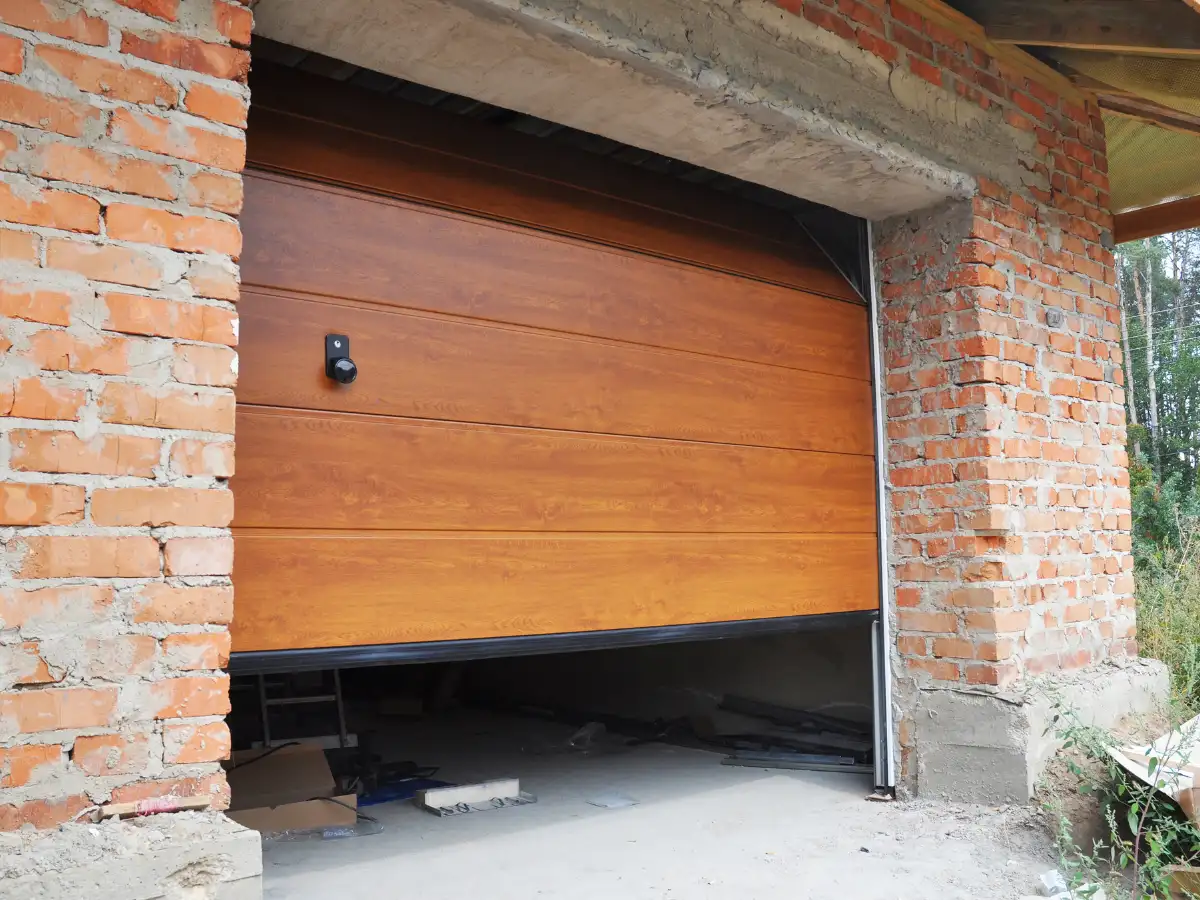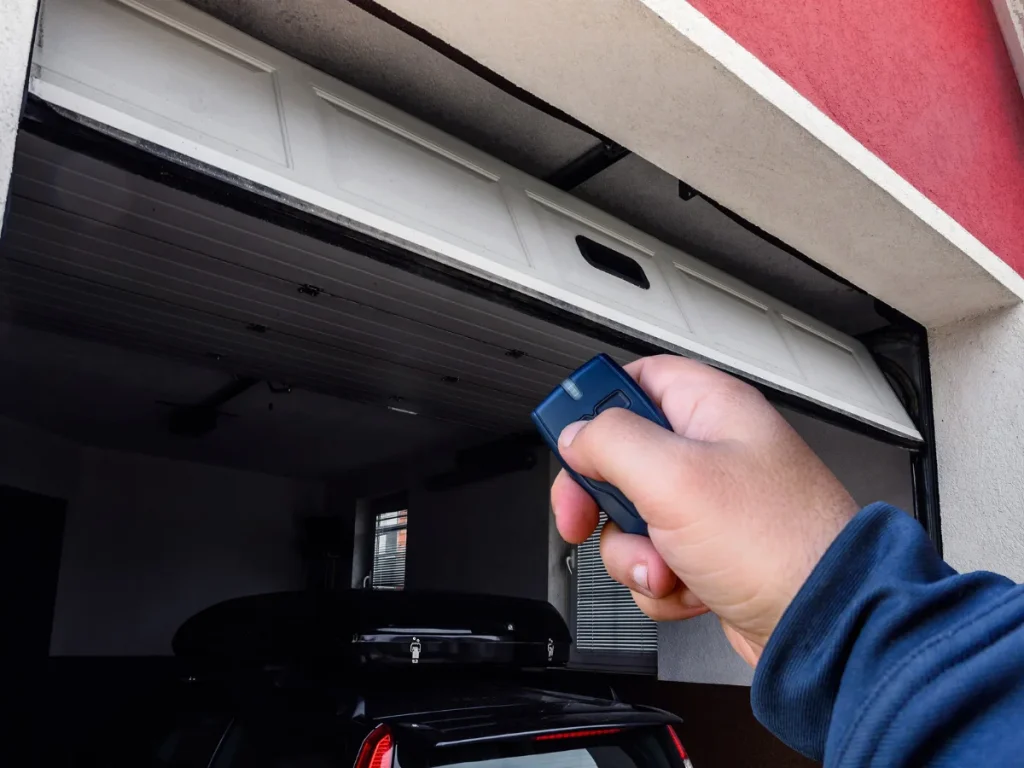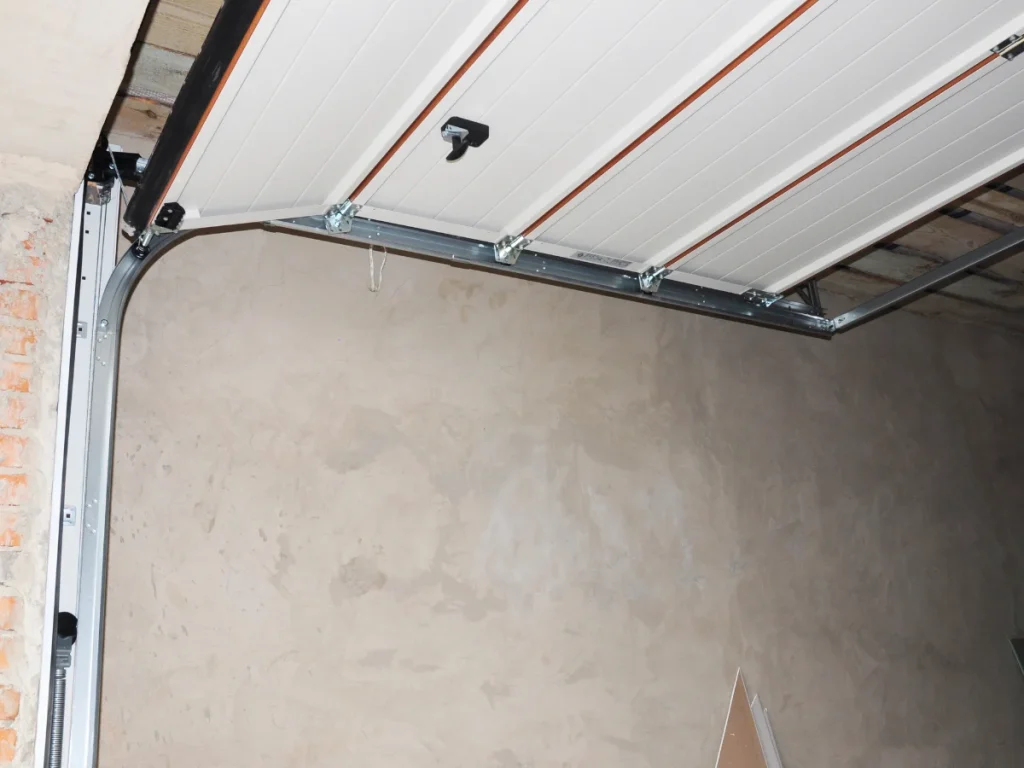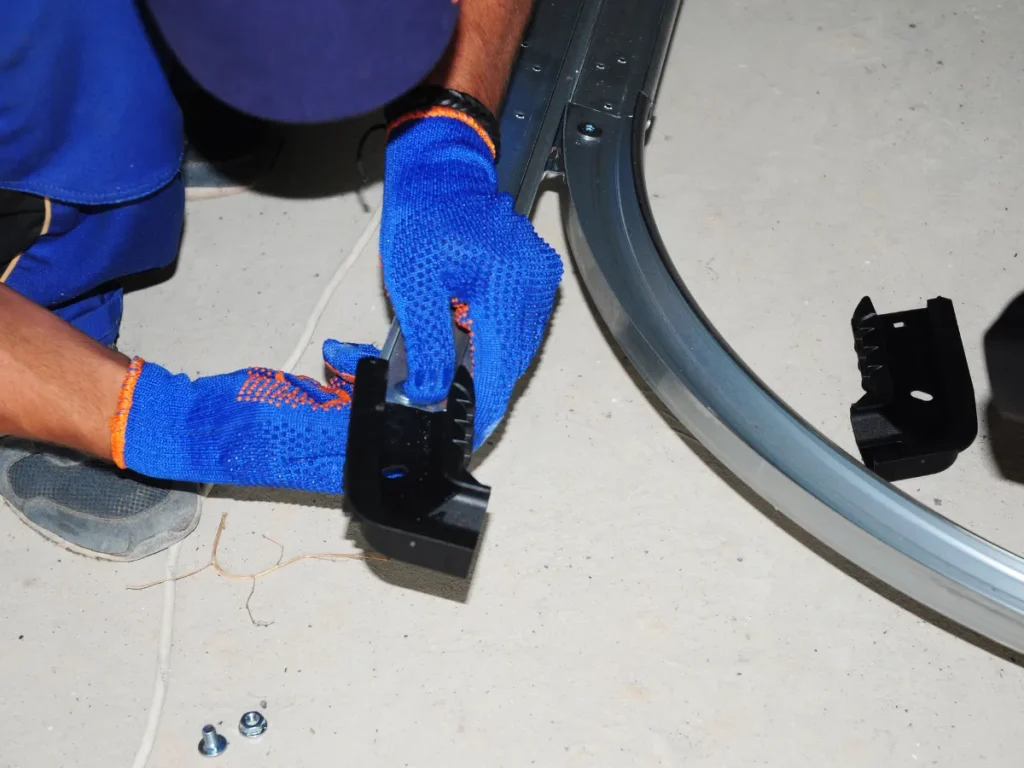A garage door that won’t close is more than just a hassle—it’s a security risk and an open invitation for pests and weather damage. If you’re standing there pressing the remote over and over with no luck, you’re not alone. Many homeowners run into this problem, and in most cases, the fix is simpler than you might think. Here are the top reasons why your garage door won’t close properly and what you can do about it.
1. Blocked or Misaligned Safety Sensors
Your garage door has safety sensors near the bottom of the tracks. These sensors prevent the door from closing if they detect anything in the way, ensuring that people, pets, and objects don’t get trapped underneath. However, sensors can sometimes stop working due to dirt, misalignment, or blockages.
Common Sensor Issues:
- Objects like trash cans, tools, or bikes blocking the path
- Dirt, cobwebs, or dust covering the sensor lenses
- Sensors that are misaligned and not facing each other
Cleaning the sensors is simple, but realigning them can be tricky. A technician can accurately diagnose sensor issues and recalibrate them to ensure your garage door closes smoothly.
2. Garage Door Opener Malfunctions
If your garage door won’t close and nothing is blocking the sensors, the issue could be with the garage door opener. Over time, settings can shift, wiring may become faulty, or the opener itself may wear out.
Potential Opener Issues:
- The limit settings are off, causing the door to think it has hit the ground when it hasn’t
- Weak or dead remote batteries
- Faulty wiring or a worn-out motor
A trained technician can quickly determine whether the problem is a simple setting adjustment or if you need a new garage door opener. DIY adjustments may cause more harm than good, leading to costly repairs down the line.
3. Damaged Tracks or Rollers
Garage doors move along metal tracks with rollers to ensure smooth operation. If the tracks are bent or the rollers are worn out, the door may get stuck or refuse to close properly.
Signs of Track or Roller Problems:
- Grinding or scraping noises
- Visible dents or misalignments in the tracks
- The door shakes or jerks while moving
While minor track bends may seem fixable with a hammer, improper adjustments can make things worse. A professional can realign or replace tracks and rollers without causing further damage to your door system. If left unaddressed, damaged tracks can eventually make the door inoperable.
4. Broken or Weak Garage Door Springs
Garage door springs do the heavy lifting when opening and closing the door. If they snap or lose tension, the door won’t function properly, and trying to force it closed can be dangerous.
Signs of Broken Springs:
- A loud bang when the door was last in use
- The door feels heavy or doesn’t stay open
- The opener strains, but the door won’t budge
Garage door springs are under extreme tension and can cause serious injury if handled incorrectly. A professional technician can safely replace garage door springs and get your door working again without risk.
5. Weather and Temperature Issues
Extreme temperatures can affect garage doors in various ways. Cold weather can cause metal parts to contract, making movement stiff, while heat and humidity can cause wooden doors to expand, preventing them from closing properly. If you’ve noticed your garage door not closing when temperatures drop or rise, weather-related expansion and contraction could be the culprit.
Rather than experimenting with lubricants or making adjustments yourself, a professional can assess whether the problem is weather-related and apply the right solution to keep your garage door running year-round.
6. Loose or Snapped Cables
Garage doors use cables to help lift and lower smoothly. If a cable snaps or loosens, it can cause uneven movement and lead to your garage door not closing completely. Much like springs, garage door cables are under high tension. Attempting to fix them yourself can be extremely dangerous. A professional can safely replace cables and rebalance the door to ensure smooth operation.
7. Manual Lock Engaged
Some garage doors have a manual lock that can be engaged accidentally, preventing the door from closing. If unlocking the door doesn’t solve the issue, a technician can inspect whether the lock mechanism is jammed or causing other malfunctions. If unlocking the door doesn’t solve the issue, a technician can inspect whether the lock mechanism is jammed or causing other malfunctions.
8. Lack of Regular Maintenance
Like any mechanical system, garage doors require regular upkeep to function properly. Neglecting routine maintenance can lead to gradual wear and tear, resulting in unexpected breakdowns. Scheduling regular garage door maintenance can help catch small issues before they turn into expensive repairs. A professional can lubricate moving parts, tighten hardware, and ensure everything is working correctly.
9. Worn-Out Garage Door Seals
The rubber seals along the bottom of your garage door help keep out drafts, moisture, and pests. Over time, these seals can crack or wear down, which may cause your garage door to stop closing completely.
Signs of Worn Seals:
- Spaces between the bottom of the garage door and the floor
- Light or air coming through when the door is shut
- Water seeping into the garage during rain
A professional can replace worn-out seals and ensure your garage door closes tightly and securely.
10. Misaligned Garage Door Panels
If one or more of your garage door panels shift out of alignment, it can prevent the door from closing completely. This can happen due to general wear and tear, accidental impact, or structural issues.
Signs of Misalignment:
- Uneven gaps between panels
- The door appears crooked or warped
- The door gets stuck mid-operation
A garage door technician can assess whether the panels need realignment, reinforcement, or replacement to restore proper function.
What You Should Look for in a Garage Door Repair Company
Choosing the right company for garage door repair ensures quality service and lasting results. Look for a company with experienced technicians, positive customer reviews, and a solid reputation in your area. They should offer transparent pricing, fast response times, and warranties on parts and labor.
A reliable repair service will diagnose issues accurately, provide honest recommendations, and use high-quality replacement parts. Avoid companies that push unnecessary repairs or lack clear communication. By selecting a trusted professional, you can keep your garage door operating safely and efficiently.
Protect Your Residential Property When Your Garage Door Won’t Close
A garage door that won’t close isn’t just inconvenient—it puts your home’s security at risk. If you’re asking yourself, “Why won’t my garage door close?” simple fixes like clearing sensor obstructions might work, but many issues require professional expertise. Whether it’s broken springs, damaged tracks, or a faulty opener, getting expert help ensures the job is done safely and correctly. Don’t let a malfunctioning garage door leave your home exposed. Contact Arizona Garage Door & Repair today for expert repairs and reliable solutions!




